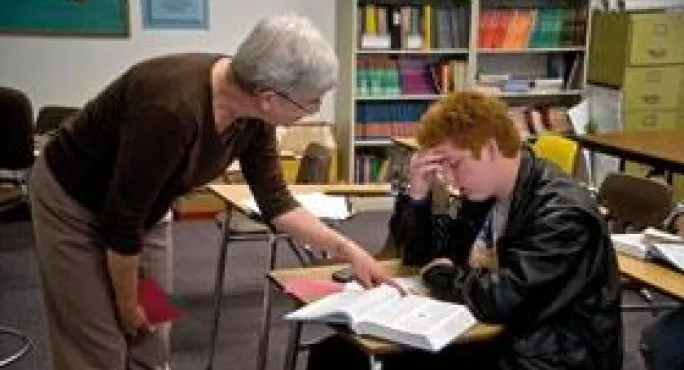Basic skills qualifications may let down most in need

Adults with the most severe literacy and numeracy difficulties and those with learning disabilities could lose out under new basic skills qualifications, adult education body Niace has warned.
From September, key skills qualifications will be replaced by functional skills, first introduced in 2010 and aimed at linking English and maths to practical, everyday tasks. But Carol Taylor, director of research and development at Niace, said that the new qualifications lack a route for “pre-entry” students - those who are not yet ready for the entry-level qualifications.
The 2011 Skills for Life survey, which aimed to measure the progress made since the investment of about pound;9 billion in basic skills, found that those with the poorest skills had made the least progress over the previous 10 years. There was no improvement for adults with lower-level literacy skills over this period and skill levels in maths had in fact declined, the survey showed.
Eight million adults lack functional numeracy skills and 5 million do not have functional literacy skills. But research into the impact of Skills for Life found that efforts tended to be focused on those who needed the least amount of support to gain maths and English qualifications.
Ms Taylor said that the lack of an entry route for those most in need creates a risk of repeating this mistake. “There’s no pre-entry functional skills curriculum,” she said. “There’s no curriculum for people with learning difficulties and disabilities. I think we need a very different way of working for those people with the poorest skills.”
One solution may be the proficiency skills developed by exam board OCR, she said. As a series of small units, they can provide a way to reintroduce adults to learning English and maths.
Mark Dawe, OCR’s chief executive, said the qualifications have been “kept simple, concentrating directly on the skills and knowledge required and avoiding over-elaborate approaches to assessment”. “As well as cementing learning in their own right, they offer the stepping stones towards functional skills, GCSE and beyond,” he added.
Niace also questioned how prepared teachers are for the new curriculum, which will require staff to teach English and maths in everyday contexts and which has more stringent requirements than the previous key skills qualifications. Only about two-thirds of teachers say they are ready for the changeover, according to Ms Taylor. “There’s still a lot of work to do over the next three months,” she said.
Jean Kelly, director of professional development at the Institute for Learning, said that the key issue for teachers is integrating English and maths into vocational skills, and that staff need support in developing a team approach.
“There has been strong agreement that the embedding of functional skills within vocational qualifications is a good idea and best practice, but it requires teams of teachers, including vocational specialist and functional skills staff, to work together to successfully develop learners’ functional skills,” Ms Kelly said.
But despite these difficulties, Ms Taylor said that it was right to make the curriculum broader and more demanding to address persistent basic skills problems. The UK Commission for Employment and Skills found in a survey of 90,000 businesses that one in five employees who lacked the skills to be fully proficient at their jobs had problems with numeracy, and one in seven had literacy problems.
“Functional skills requires more of the learner and it requires them to learn in context,” Ms Taylor said. “Skills for Life could be very narrow. People felt there was more and more teaching to the test, and the assessment was for writing only; there was no test for reading, speaking or listening.”
SKILL SET
pound;9bn - The amount spent on basic skills between 2003 and 2011.
56.5% - The percentage of all adults who achieved level 2 or above in literacy, equivalent to a good GCSE grade - a rise of more than a quarter since 2003.
15% - The percentage of all adults who only achieved entry level 3 in literacy, equivalent to the standard expected of an 11-year-old.
24% - The percentage of all adults who only achieved entry level 2 in numeracy, below the level needed to understand price labels or pay household bills.
Source: Skills for Life survey, 2011.
Keep reading for just £1 per month
You've reached your limit of free articles this month. Subscribe for £1 per month for three months and get:
- Unlimited access to all Tes magazine content
- Exclusive subscriber-only stories
- Award-winning email newsletters


